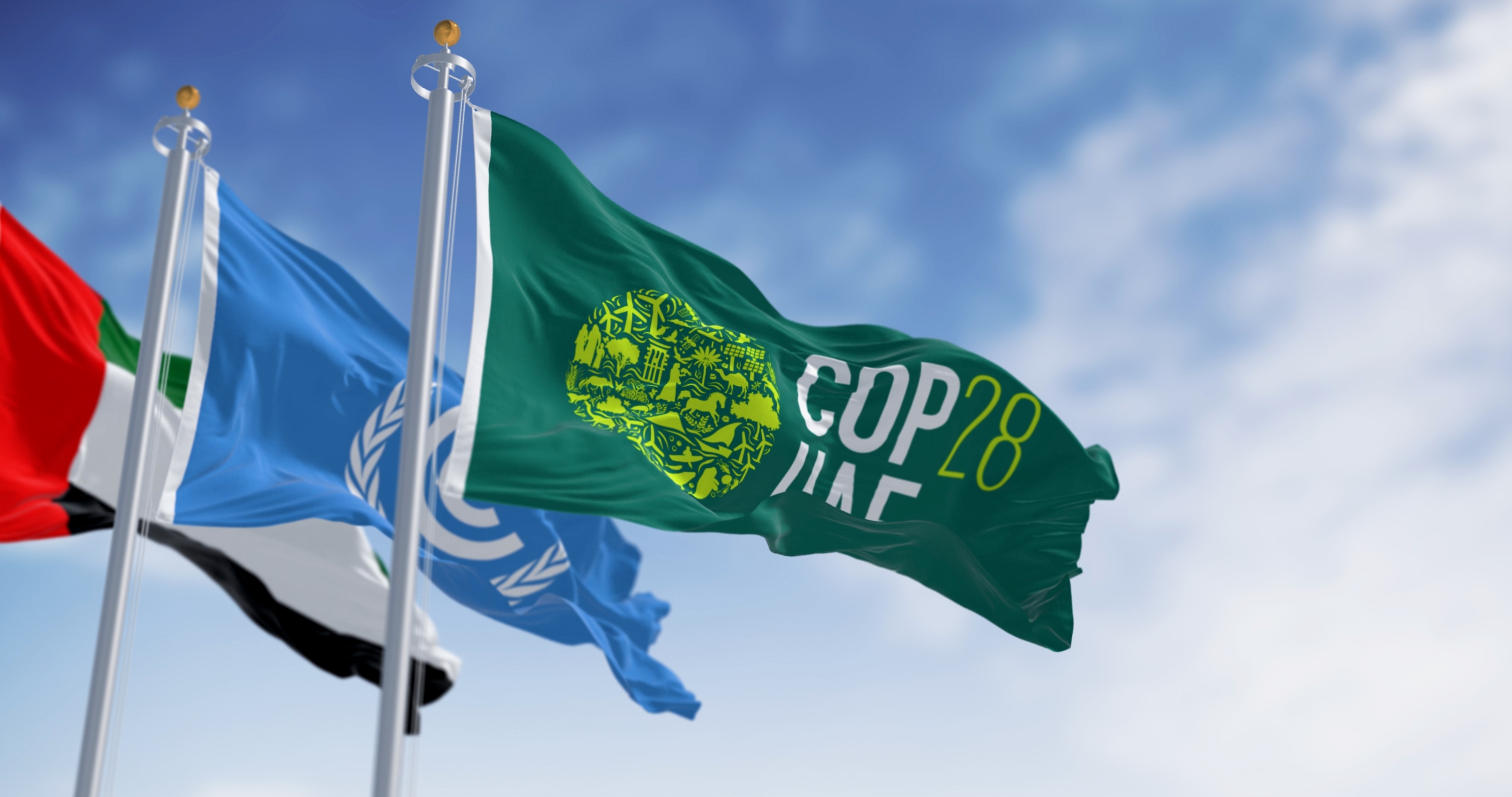
Global Climate Stocktake: What to Expect at COP28
Seven years after the world agreed to limit global warming to 1.5°C above pre-industrial levels by 2030 through the Paris Agreement, the 198 Parties are set to reconvene at COP28 in Dubai on November 30 for the first global stocktake of progress. This 13-day conference will be a key determinant in reaching this target – the planet’s current trajectory could see the 1.5°C limit surpassed within six years. With much anticipation surrounding course-correcting agreements and the details of COP16’s climate finance plan, Canada will certainly be looking to maintain its reputation as a climate leader on the world stage despite facing criticism at home on its own progress towards net-zero targets.
Conversations will focus on concrete measures to fulfill commitments made at previous iterations of COP, primarily the Paris Agreement 2030 targets and the Climate Finance Delivery Plan target of mobilizing a collective US$100 billion per year by 2025 to support climate change mitigation and adaptation efforts in developing countries – neither of which are likely to be achieved at the current rate of progress. Other issues on the agenda include water and land use, transportation, health and food systems, peace, and energy transition impacts on industry and trade. Green hydrogen development is also likely to be a central focus of the conference, with Canada seeking to secure billions of dollars in prospective investments.
There is much anticipation surrounding the role fossil fuels will play in the resultant pathway to global decarbonization. This year’s President Designate, Sultan Ahmed Al Jaber, also serves as chief executive officer of the Abu Dhabi National Oil Company, a role that has led to some speculation around whether he may seek to leverage the COP28 platform to advance commercial oil and gas interests. As this year’s host, the United Arab Emirates will not be the only party grappling with the competing interests of an oil-centric economy and global decarbonization targets; Canada faced criticism from certain environmental stakeholders for opting to support a phase down over a phaseout of oil, gas, and coal at COP27, which ultimately failed to gain broad enough consensus to move forward. This year, Canada will be calling for action on a coal phaseout and advocating for carbon pricing, but all eyes will be on how political pressure and a looming election at home shape its stance on oil and gas. Canada’s Minister of Environment and Climate Change Steven Guilbeault has suggested that a commitment to reduce domestic methane emissions beyond the Global Methane Pledge targets may be announced during COP, enabled in large part by regulations cutting oil and gas emissions by 75%. With the support of the United States, France is also poised to table a coal exclusion policy for private finance and insurance companies, which is expected to be met with opposition from India and China.
Minister Guilbeault will lead the Canadian Delegation and has been invited by the President Designate to serve as co-facilitator of discussions with fellow Environment Ministers. The full list of delegation members will not be released until COP is underway but is expected to include Minister of Science and Innovation François-Philippe Champagne and Ambassador for Climate Change Catherine Stewart, among diplomats, senior officials, parliamentarians, Indigenous leaders, and youth. Two of Canada’s most vocal critics of the federal government’s environmental measures, Alberta and Saskatchewan Premiers Danielle Smith and Scott Moe, will also be in attendance to ensure their provinces are adequately represented.
The Canada Pavillion will be hosting a full week of programming along three primary pillars: ambition, implementation, and partnership. The Pavillion program brings together key Canadian players in the global energy transition, featuring representatives from the critical minerals supply chain, clean technologies such as low-carbon hydrogen, and the climate advocacy sector, as well as some usual suspects from the oil and gas industry. The program includes sessions such as Canadian Leadership in the Green Transition and Climate Misinformation and Polarization to promote the government’s climate action, and more targeted sessions on carbon contracts for difference, a global green shipping corridor, sustainable agriculture, and more. Over at the Clean Resource Innovation Network Pavilion, Canadian stakeholders will also be leading discussions on the importance of developing robust markets for biofuels and sustainable aviation fuel in a December 3 session.
With only a short runway to 2030, COP28 is an opportunity for the world to reaffirm its commitment to the Paris Agreement and global cooperation against a backdrop of rising geopolitical tensions. PAA will be following the conference closely from Dubai and from Ottawa to keep our clients up to date on the implications of these important discussions.